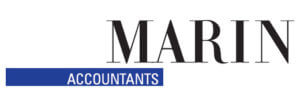Business forecasting is predicting the future financial outcomes of your business. It combines information from past periods with a view to the future, taking into account factors both internally and externally.
We work with our clients to effectively and efficiently build forecasts that are as accurate as possible. This helps the business owners make decisions based on the forecasted future position of the business. The decisions may include hiring additional staff, buying more stock to meet forecasted increases in demand, or by using the forecast to determine seasonality, decreasing discretional spend in the quieter months.
Profit and loss statement
The profit and loss statement and balance sheet are the two most common components of a budget because they show whether or not you’re making money; however, a cash flow forecast is also important. It predicts how much money you’ll have in the bank at any one time based on when you expect to be paid and when you expect to have to pay bills or staff.
A lot of new businesses run out of money at some point. A cash flow budget will help you see when those dry spells are coming so you can plan around them. You might delay an order of supplies, hold off on buying new equipment, or organise a loan or line of credit to get you through.
Analysing the forecasts
It is important to spend more time analysing the forecast rather than building it. At Marin Accountants, we help our clients by adding apps into Xero and other accounting packages that give us the ability to use budget numbers or up-to-date actuals to create a draft forecast. The software can help identify trends based on historic data and then we work together to build assumptions around growth.
Tracking the data
Once we have worked with a client to build a budget, it is of paramount importance to work with them to track the actuals vs budget going forward. We ask questions such as: is revenue where they thought it would be? Are expenses under control? A feedback loop between budget and actuals helps businesses make running adjustments where necessary.
How often do I need forecasts?
In terms of timing, weekly or monthly forecasts may be necessary when starting your business, experiencing rapid growth, or having financial difficulties. Regular forecasts allow you to closely monitor your finances and develop strategies to fix problems before they become major issues. Monthly or quarterly forecasts may be more appropriate for a stable, established business.
Should you have any queries or wish to discuss business forecasting with us please click here.



